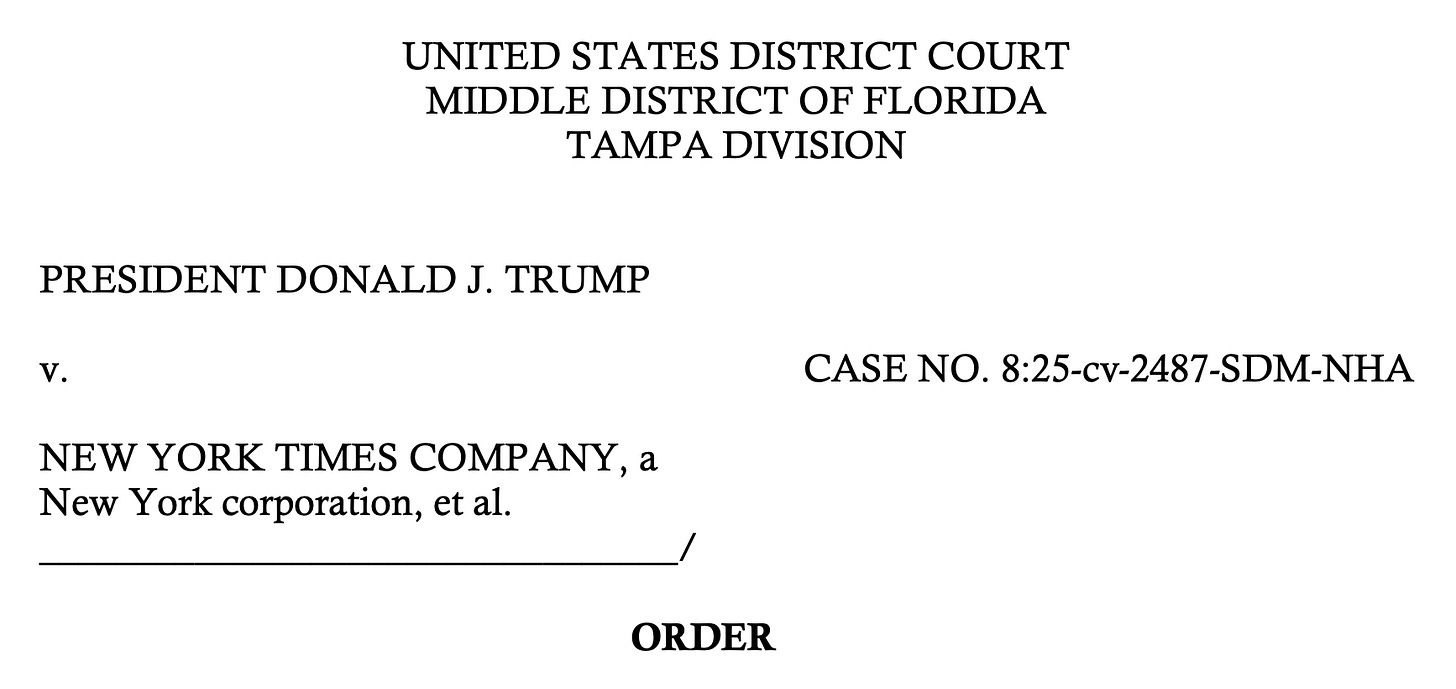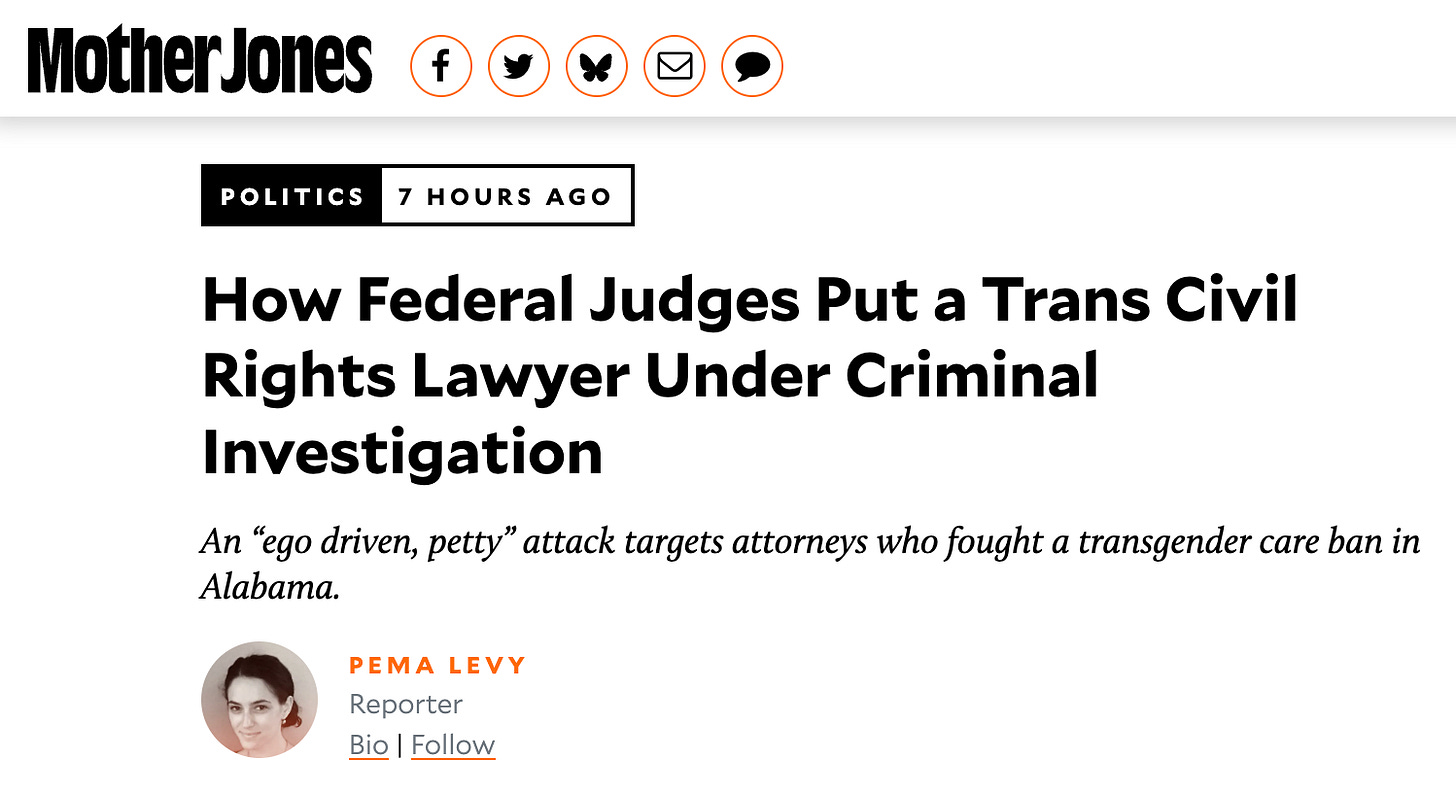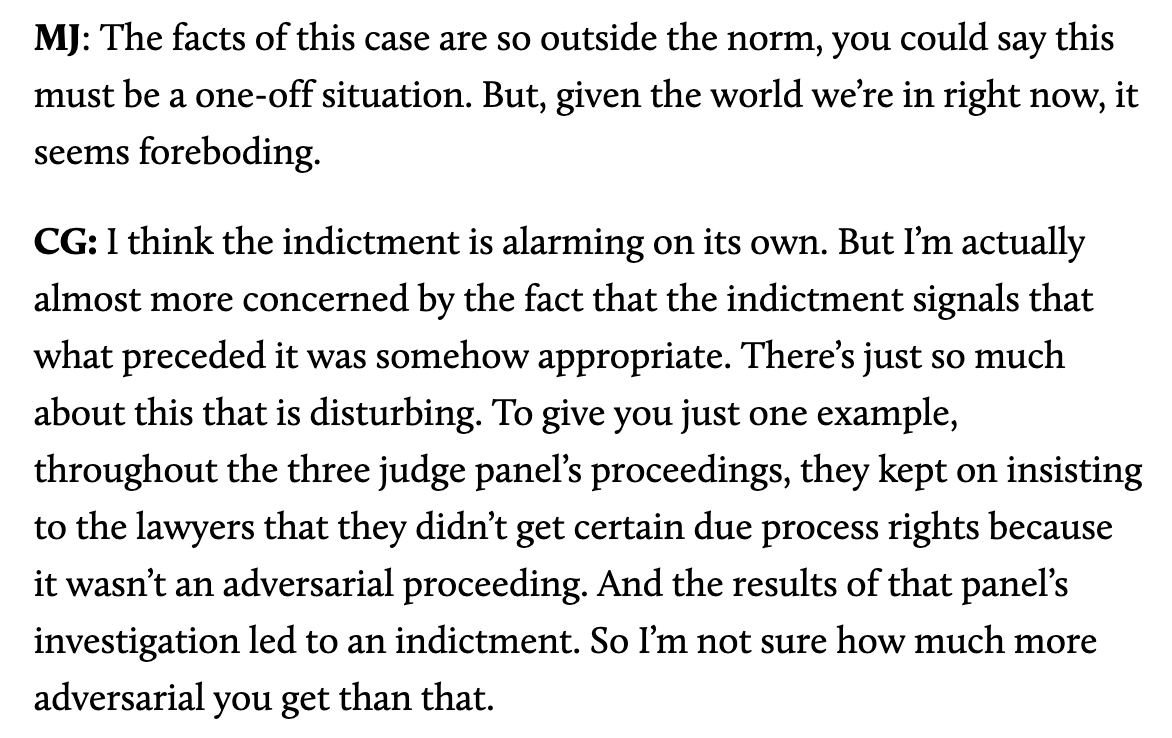In tossing out Trump's NYT complaint, judge says "tedious" language violated federal rules
Also: Law Dork at GW Law — and talking with Pema Levy at Mother Jones. And: An ask for your help supporting Law Dork in this critical moment!
A federal judge on Friday tossed out President Donald Trump's complaint against The New York Times, Penguin Random House, and several journalists, finding that the complaint violated court pleading rules due to its expansive, over-the-top, "tedious" use of language.
The order striking the complaint came from U.S. District Judge Steven Merryday, a George H.W. Bush appointee, formally finding that the 85-page complaint “stands unmistakably and inexcusably athwart the requirements of Rule 8” of the Federal Rules of Civil Procedure, setting forth the standards for court pleadings.
Noting that “[a] complaint is a short, plain, direct statement of allegations of fact sufficient to create a facially plausible claim for relief and sufficient to permit the formulation of an informed response” and that “lawyers receive a modicum of expressive latitude in pleading the claim of a client,” Merryday concluded that “the complaint in this action extends far beyond the outer bound of that latitude.“
Merryday’s ruling was refreshing and, at times, refreshingly blunt.
“As every lawyer knows (or is presumed to know), a complaint is … not a protected platform to rage against an adversary,” the judge, born in 1950 and appointed to the bench in 1992, wrote.
The filing of the lawsuit earlier this week had been met with harsh criticism — including from me — due to the language employed, beyond broader First Amendment concerns. Ken White put it well:
Merryday’s opinion protecting his jurisdiction — and, with it, the role of the federal courts — was at the same time a notable pushback against Trump’s efforts to steamroll the First Amendment, particularly against journalism and comedy that he views as dissenting from his preferred views.
Friday’s order striking the complaint was all the more notable because it was issued sua sponte, meaning on the court's own motion — not in response to a motion from any of the defendants.
In detailing just how far afield of the rules Merryday believed the complaint had gone, he wrote, “The reader of the complaint must labor through allegations, such as ‘a new journalistic low for the hopelessly compromised and tarnished “Gray Lady.”’” The reader must endure an allegation of ‘the desperate need to defame with a partisan spear rather than report with an authentic looking glass’ and an allegation that ‘the false narrative about “The Apprentice” was just the tip of Defendants’ melting iceberg of falsehoods.’“
An amended complaint can be filed with the next four weeks — without all of the inappropriate “invective” in it.
I need your help

In this critical moment, the independent legal journalism that I produce at Law Dork — and across all of the platforms where you read my work — is essential.
Things are not going to get better without accurate, no-holds-barred reporting and analysis that seeks to hold those in power accountable — the very type of journalism that I am extremely well positioned to provide and have the track record of providing.
Since I started Law Dork in June 2022, I have published more than 700 posts here — more than 150 of them since Donald Trump returned to the Oval Office in January.
Please, consider to a paid subscription to Law Dork today to help make this work possible.
In addition to coverage of the Trump administration and the U.S. Supreme Court, I provide in-depth coverage of LGBTQ legal developments, criminal justice stories, the post-Roe landscape, immigration litigation and anti-immigrant initiatives, and the broader assault on democracy.
If you already have a paid subscription, thanks! Please, consider sharing this newsletter with others and tell them why you subscribe.
On Thursday morning, I was at GW Law, moderating the school’s Supreme Court Term Preview panel with professors, Alan Morrison, Naomi Schoenbaum, and Spencer Overton.
It was a smart discussion of the key cases that we know and expect to come to the justices this term — including cases addressing presidential powers, pro-LGBTQ and anti-LGBTQ (primarily, anti-transgender) laws, and election laws — and it really made clear how important this term will be for so much of what is central to my coverage here.

I’ll have much more on the coming term in the weeks to come — before the justices return to the bench on October 6 — and you can help ensure Law Dork’s continued stability over the coming term and beyond with a paid subscription today.
Law Dork in the news
One of the stories that I have covered in depth at Law Dork is the Alabama federal courts “judge-shopping” investigation that came out of challenges to the state’s ban on gender-affirming medical care for trans minors and the investigation’s fallout — which included the indictment of a civil rights lawyer this summer.
I spoke with Pema Levy from Mother Jones about all of this recently, and she published her report and our Q&A on Friday. As Levy wrote, “Geidner has spent considerable time following this case’s many twists and turns, even traveling to Alabama to witness proceedings.”
It was a great conversation, I’m so glad she reached out, and I’d urge you to check it out.
It also is a key example of the work that supporting Law Dork with a paid subscription helps make possible. As Levy wrote:
It’s hard to capture all the convoluted pieces of this tale—and, besides Geidner, few reporters have even tried.
If you can — and I understand not everyone can — please support work like this with a paid subscription to Law Dork today.







I don't always reply to your posts, in fact, I actually rarely do.
I'd like to just say I value your posts, read them every time you post, and have learned, which is my intent, as a non-legal eagle, and mostly recognize how passionate, yet respectful, you react to cases as you follow them throughout the process.
You are a valuable contribution to independent thought and reporting as well as helping us all understand the cumbersome and uniqueness of the law process.
Thanks for all you do, Chris.
My legal analysis of Trump's complaint is that it wasn't even intended--by Trump or his lawyers--to prevail in a court of law under the governing law. As far as I could ascertain, Trump and his lawyers used that lawsuit for outright open and notorious extortion--much like I'm certain Trump and his lawyers used other lawsuits previously.
Trump has essentially turned the US government into the O in RICO. It seems that even was his point in laying off or firing all the people who lost their jobs because of Trump. I'm seriously starting to think that Trump hired Guiliani (a former US Attorney who prosecuted organized crime in NYC) at least in part to advise Trump on how to do "business" like a mob boss.